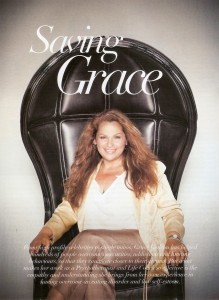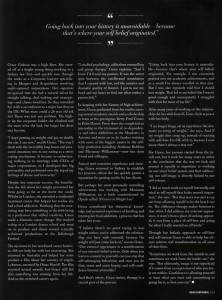In the media
Grace is a contributor to media articles and radio programs on areas ranging from addictions to relationships to financial and business coaching and more. To contact Grace for an interview, please click here
We can say Grace interviewed on impacts of possible mid- life crisis.
In 12 months, Barnaby Joyce blew up his life. Can what happened in April last year explain it?
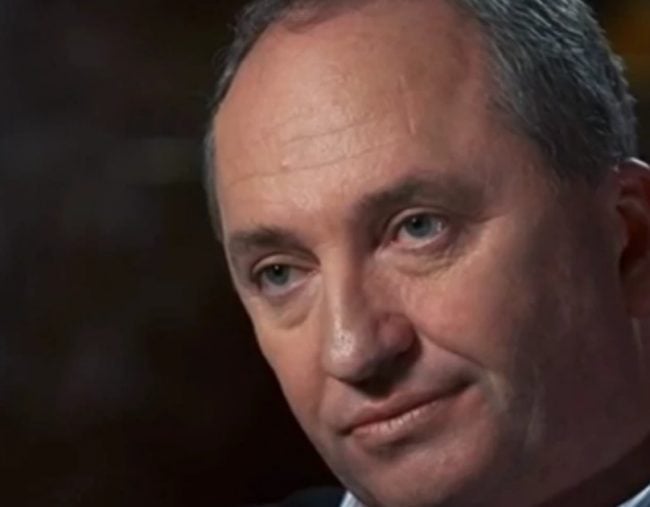
In April of last year, our then deputy prime minister and leader of the National party, Barnaby Joyce, turned 50.
Within weeks of his birthday, it was rumoured that his wife of 24 years, Natalie Joyce, confronted the woman her husband was having an affair with, his media adviser Vikki Campion, in their hometown of Tamworth.
Reportedly Campion was moved to minister Matt Canavan’s office.
READ MORE
The following month, Joyce attended a Nationals conference in Broken Hill, and colleagues described him as “a mess”.
At home, Joyce was said to be working on his marriage. It is believed Natalie Joyce sought help from Catholic priest, Father Frank Brennan, to counsel her husband.
In October, Campion reportedly went on stress leave.
By December, Joyce announced during the same-sex marriage debate that he was now separated from his wife. It was then that he moved in with Campion.
Before his 51st birthday, it was publicised that Campion was pregnant with Joyce’s child and that he would be resigning as deputy prime minister and leader of the National party.
In 12 months, Barnaby Joyce blew up his life.
On Monday night’s episode of Q&A, politician Jacqui Lambie said: “Look, I’m going to be brutally honest and I have been about this all the way through.
“This is beyond a midlife crisis. This is not the Barnaby Joyce I know. I am concerned about his mental welfare.”
But is it actually beyond a midlife crisis? Or is that the perfect explanation?
In all the coverage of the Joyce saga – particularly his decision to accept $150,000 for an interview with Seven Network’s Sunday Night – the subject of his ‘mental welfare’ has not been seriously broached.
We discussed the Barnaby Joyce and Vikki Campion interview on today’s episode of Mamamia Out Loud…
It’s not difficult to see why. There are a number of victims in this story; his ex-wife, his four daughters, his son who never asked to be thrust into a media storm, and even his former staffer who had images of her splashed across every newspaper in the country. Joyce certainly isn’t anywhere near the top of that list.
But could his age – or a recent milestone birthday – go some way in explaining perhaps the most eventful 12 months of his life?
The jury is out on whether or not the midlife crisis is a true psychological phenomenon, but last year two economists claimed to have statistical proof that such a life stage exists.
After surveying 1.3 million people across 51 countries, the economists identified a dip in happiness between the ages of 30 and 50, though they found it impossible to measure exactly how it affects people’s jobs, marriage or economic activity.
In 1978, the New York Times ran a story on a psychologist who claimed midlife crises always happen within three years of a significant birthday, like 30, 40, or 50.
Carl Jung theorised that midlife is an intense period of self-actualisation and self-awareness, with many asking questions about who they are and why they are here.
It can also be a time where an individual is desperate to return to their youth, without the constraints and limitations of adulthood.
Grace Gedeon, an international life coach who specialises in addiction, trauma, self esteem, relationships and financial issues, told Mamamia that in her practice, she’s found midlife crises occur much earlier than 50.
“The midlife crisis tends to happen in your early 40s,” she said, “when you’ve been going down a road in your life based on duty and shoulds and beliefs and structures set up by society, and then you get to basically half your life span and you go ‘OK, is the way I’m living my life the way I want to be living my life?’”
If anything, Gedeon wonders if it’s an existential crisis driving Joyce’s odd behaviour, epitomised by the question: “What is the meaning of my life?”
Gedeon was also clear that infidelity is an act that takes place at all ages, through all life stages.
But after having a family, and once children grow into adults, “many people feel torn between a family that they love and care for and a desire to discover themselves.”
Did something about turning 50, entering a new decade, perhaps surpassing his (estimated) midlife point and realising he’d been married for half of that, fill Joyce with existential dread?
Though we don’t know the reason why, we do know that in 12 months, one of our most prominent politicians blew up his life.
And he will be left to pick up the pieces.
Grace interviewed on why it’s sometimes better for the children, if parents chose to retire a marriage.
I was nine years old when we walked out on my dad, and I am so grateful we did.
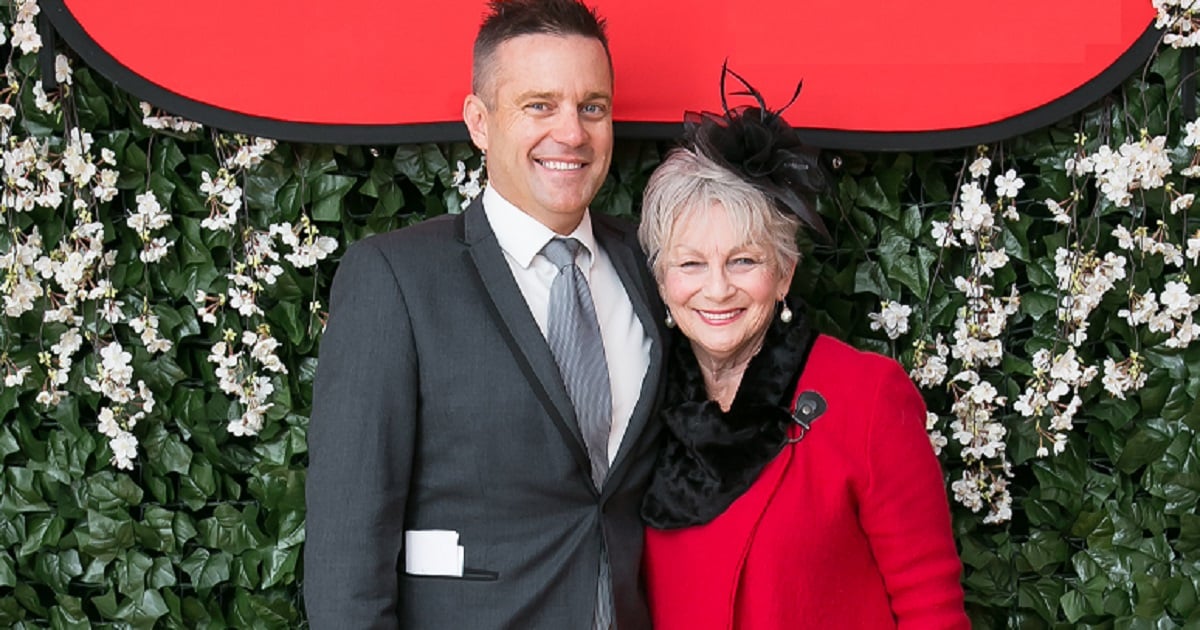
We walked out on my dad when I was just nine years old. I clearly remember getting up one morning and finding my mum and my grandmother frantically packing blankets and clothes into black garbage bags. I asked what was going on and was told; “We’re leaving your father.”
I remember that scene so vividly because, after that moment, my life was never the same again. By the time my father had arrived home from work, we had left.
READ MORE
This may sound harsh but it was the best decision ever. Seeing my mum happy was far more important and healthy for my sister and myself than to see my family staying in a toxic situation.
My father was a womanising, abusive alcoholic, but even that wasn’t enough for my mum to leave him. The final straw came for her when she got sick and was in and out of hospital. My sister and I were left in the “care” of my father. Each time we visited her in hospital we’d tell her about how we’d have to make ourselves jam sandwiches for dinner because Dad was passed out drunk on the couch most afternoons.
As an adult, I look back on this time and think of how brave Mum was leaving our house with only our clothes and bringing my sister and I up as a single, working mum.
How many times have you heard, “we’re staying together for the kids?” Well what if that isn’t what’s best for the kids?
I know not all fathers are alcoholics or abusive or cheaters, but if you’re truly miserable in your marriage, what is your unhappiness saying to your kids? That it’s okay to be in an unhealthy or unhappy relationship? That this is how all relationships work?
I believe that having no male role model was far better for me than having a bad one.
As for my female role model, I’ve learnt that women are strong, don’t need to put up with men’s shit and that if you’re abusive to your wife and neglect your kids, they have every right to leave you. Kids deserve to see both their parents happy.
I was recently chatting to a friend whose parents are still married but haven’t slept in the same bed for more than 30 years, nor do they spend much time together. When I asked why she said; “Because they hate each other, my parents have hated each other for years, but they stayed together for our sake. Now that we have all left home they’re too old to leave each other.”
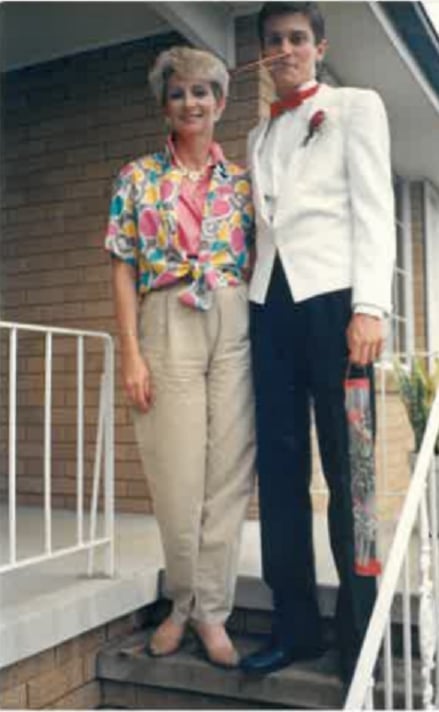
What a sad way to spend 30 years of your life.
In Neil Strauss’s book The Truth – An uncomfortable book about relationships he explores the fact that we all get our relationship cues from our parents. “Our first experience with love is with our parents. That sets the template for how we see love and what we want out of love.”
International life coach Grace Gedeon says parents who discover during their marriage or partnership that they are not fulfilled in the relationship after making every effort to improve the situation, have no choice but to move on.
If parents discover during their marriage or partnership that they are not fulfilled in the relationship and with each other and they have made a genuine effort to reconcile their differences or re-establish a connection and this hasn’t worked, then it is important they admit that it is time to let go .
Sometimes people are not meant to be together for life and they force themselves to stay together for the security or the children. These couples are living in some form of self-denial. They are not allowing themselves to find true happiness and fulfilment, therefore they are role modelling to their children that self-sacrifice is more important than self-actualisation. Alternatively they may deny their needs and martyr themselves – also very unhealthy patterning for children to observe and learn. This all leads to an emotionally unhealthy cycle.
For better, and all too often for the worse, childhood experiences provide the models for our adult relationships. If a daughter sees her dad abusing her mum verbally or physically, she grows up believing this is an acceptable way for men to treat women.
If a young boy sees his mum being abused, unhappy and too scared to leave, he grows up thinking that women are weak and submissive and won’t ever leave.
Your relationship is going to be replicated in your children’s future relationships. My mum’s example will always be replicated in mine.
Grace interviewed on factors that cause some parents to regret having children.
I found a Facebook group where parents talk about regretting having kids.
I’m sure you’ve seen the dozens of news stories about people who never want children, about how they are ostracised and told that they are selfish and will never know true love…
But there’s another side to this story. It’s so taboo most people don’t dare talk about it.
Parents who have children but now regret their decision.
You would think that anyone who has brought life into this world would now be yelling it from the highest mountain about how much they love parenthood.
But that’s not so. There’s now support groups and social media sites dedicated to parents who not only regret becoming parents but also resent their children.
READ MORE
One of those group is I Regret Having Children.
Laura posted:
“I have 3 children and my and my husband’s life is all about them. While I love them and wouldn’t give them back, my life is not about me anymore and I miss that. How do you come to grips with grieving for your time, your sleep, your body, for you?
“How do you move on and just enjoy being a parent? I think constantly about what I lost and I feel so guilty. I didn’t want to be a parent and I don’t join in with a lot of other mothers because they are just 100% about their kids and nothing else.
“I think about books and travel and art and all kinds of other things.”
It’s not just mums feeling regret…
“I am the father of a beautiful 7 month old girl who I love dearly…. but am completely miserable,” one dad shared.
“The highlight of my days is when everyone else is asleep so I can play video games for an hour before I have to go to bed…”
It’s a huge taboo, admitting to this kind of thing, but there’s a growing and largely ignored group of parents from all over the world who are confessing their regret over having children. There’s even a book addressing the issue.
Corinne Maier, a French psychoanalyst, writer and mother-of-two in Brussels, wrote candidly about her own regret in No Kids: 40 Reasons Not to Have Children.
“Children are hell. This vicious dwarf, atrociously noisy and time consuming, will pump your energy, trample your potential for well-being, while blithely polluting an already overcrowded planet.” (translated from French).
Mothers who regret having children was the focus of a study conducted last year by Israeli sociologist, Orna Donath. As part of her research, Donath interviewed women aged from mid-twenties to mid-seventies – all of whom regret becoming mothers.
While most could identify positive aspects of motherhood, for the majority of mums interviewed, “the disadvantages outweighed the benefits”.
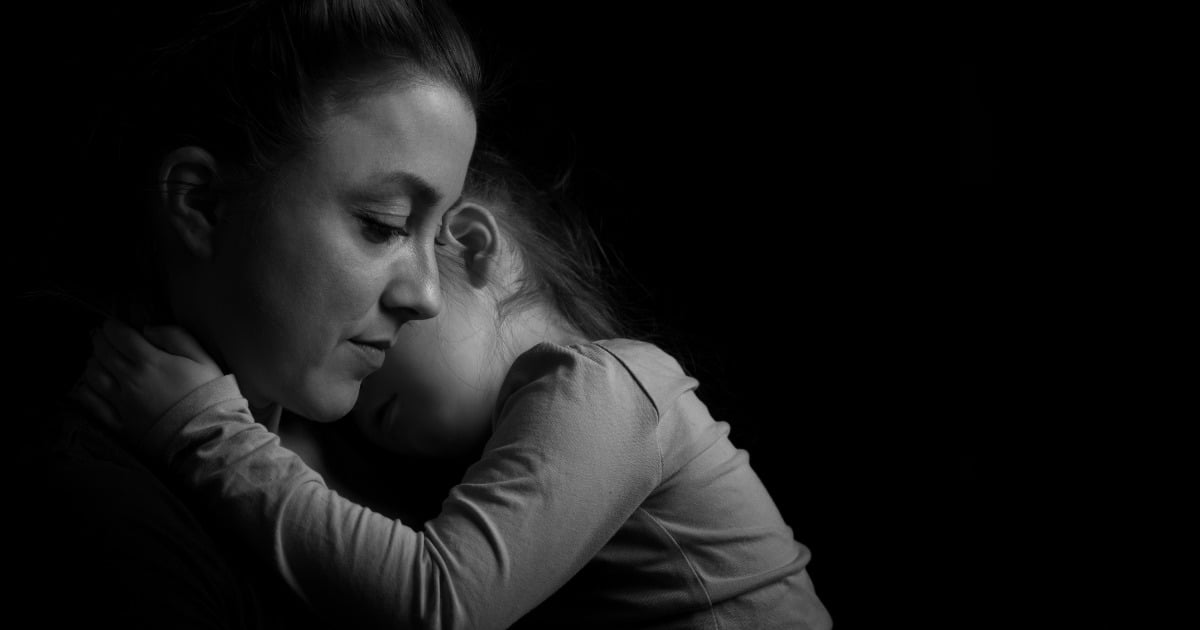
The idea for this story came from my work colleague Farah, who admitted during after work drinks that she didn’t enjoy being parent.
“I actually look for excuses not to go home, after work drinks, staying back at work, anything that keeps me away from my children.”
After a few more drinks she really opened up.
“To me, being a parent is a never ending battle, its suffocating. It may be worse for me because I’m a single mum.
“All the responsibility and pressure is on me, not my ex-husband. I feel like it’s always them, them, them. I never get me time. I really can’t wait for my youngest to move out so I can do what I want to do.”
Farah also admitted that it’s hard to talk about, as it’s something other mums don’t want to hear.
“It’s really confrontational, when I say to someone, I really don’t like my 8 year old, when I say he’s a whinger, he’s needy and emotional, they look at me like I’m a horrible horrible person, but I’m not, I’m just being brutally honest.”

After this conversation I reached out online to anyone who may be feeling the same.
I got chatting to Renata about what she feels when I mention the word ‘parenthood’.
“Prison! It’s a commitment to something you’ve never tried, never even understood when you committed to it and as such it’s one of a kind.
“You can leave a job that doesn’t suit you, it’s even encouraged in society to learn, grow, quit your job and get a better one… you can sell your home and move, you can even relocate to a different country, etc – nothing is really a lifelong commitment like this.
“Nothing prepares you for it. And it makes you feel imprisoned with decisions that you’ve made at an immature age, for life literally. It’s a Life sentence. I adore them – I do – I know it doesn’t sound like it, but this is what it feels like.”
Both parents admitted to me that if they had their time again, they wouldn’t have kids.
Grace Gedeon, a life coach and psychologist says:
“Parents who regret having kids and can’t wait for them to move out can be as a result of a multitude of factors.
“At the root of this regret may be feelings of fear, engulfment or disappointment in themselves as parents; disappointment in their children; disappointment in the parenting experience; unrealistic expectations of self and children.
“Also feelings of being trapped in fulfilling the dreams of their children and abandoning their own dreams. Self-awareness and emotional maturity are key in preventing this regret.”
Grace interviewed on impacts on victims of trauma in high profile cases.
At 13, Samantha was raped by a famous man. And the aftermath is what traumatised her the most.
When Samantha Geimer (née Gailey) was 13, director Roman Polanski picked her up in his car, drove her to the home of actor Jack Nicholson and photographed her for French Vogue.
It was here the teenager posed topless – a factor she later said made her feel uncomfortable – under the instruction of Polanski. He had organised the shoot with her mother, and dictated it was to be private and Geimer alone. It was March 10, 1977, and the teenager was scared, but she didn’t have the “self-confidence” to admit that fact to her mother.
“We did photos with me drinking champagne,” Geimer told the now-defunct Honolulu Star-Bulletin in 2003. “Toward the end it got a little scary, and I realised he had other intentions and I knew I was not where I should be. I just didn’t quite know how to get myself out of there.”
READ MORE
After the photoshoot, Geimer said the then 43-year-old fed her champagne, drugged her and repeatedly sexually assaulted her. Polanski, now 83, has long denied drugging the child but admitted to having sex with her, knowing she was underage, before fleeing to France to avoid sentencing under United States law.
He has, since then, been in a self-imposed exile and launched many bids to get his assault case dropped. All have failed.
Earlier this year, the 54-year-old made her way to a Los Angeles court to try and get the case dismissed, arguing she had forgiven the director and wanted to move on without the cloud of the case over her head. Her attempt was turned down.
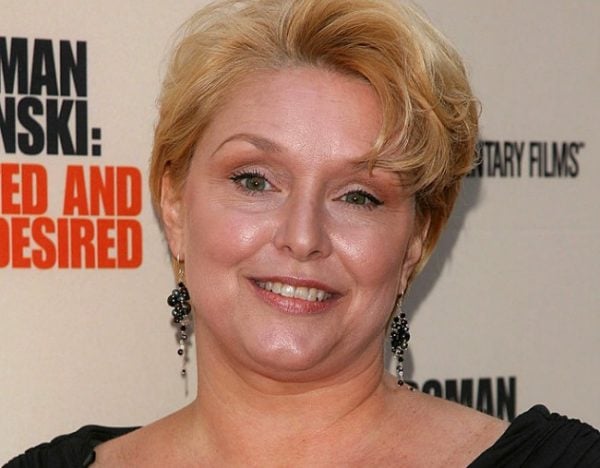
“What he did, did not affect me greatly. What happened with the court and the media traumatised my whole family and changed our whole lives,” Geimer told Good Morning Britain on Tuesday, arguing the ensuing court case and media fanfare had a more damaging impact on her state of mind than the assault itself.
“I was a teenager, I was sexually active, I was not as traumatised by the sex as everyone would like me to be, that’s just who I am. I’m not aggrieved by the way my life has turned out.”
Geimer’s admissions that she has “forgiven” Polanski and has a deep-seated desire to move on with her life are jarring in a climate where we have a propensity to be offended on behalf of someone else, and assume all victims of trauma must follow a well trodden path to healing.
Compound this with her claims that a media frenzy – one we imposed – had more of an impact on her trauma and suddenly, we don’t have a neat narrative with a victim and perpetrator. The blame, in fact, is everywhere.
So can we actually bestow victimhood on someone who has preemptively rejected the tag?
According to Carolyn Worth of the Centre Against Sexual Assault, the simple answer is no.
“No, you can’t. That’s one of the things I find difficult… I did not work for years [in this area] for everyone to be made into a victim.
“Some people see victims of assault and trauma and say ‘they will never be okay’. That’s rubbish. You don’t want everyone to be a victim if they don’t have to be.”
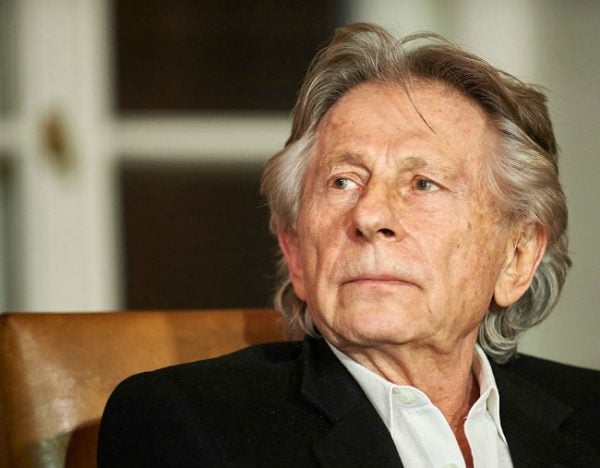
While Worth says she has “a lot of empathy” for Geimer’s “position”, she contends our focus really should be on Polanski. After all, if he had done the time initially, the case wouldn’t be ongoing, nor would Geimer feel the need to come out, so often, and speak about a crime perpetrated 40 years ago.
“But my issue is not about her, my issue was with him running. [The case] would have been long gone – given his talent – if he had just served his time.”
Anecdotally, Worth says working with children who are victims of sexual assault gives insight into what gives a ‘victim’ closure. Often, it’s not seeing the perpetrator sent to prison – particularly if it’s a family member. Instead, it’s getting them to stop; for them to understand the trauma they’re inflicting and the damage that’s been done.
She adds there are natural and overwhelming consequences of having your case and your trauma played out in the public eye.
“There’s always a downside of being a high-profile victim, it’s always going to be more difficult. It’s harder, too, because they can almost always employ really good legal advice.”
For Grace Gedeon, a Sydney-based trauma counsellor, victims of trauma aren’t always solely traumatised by the act that caused them pain.
“With sexual abuse trauma, a lot of people are pretty numb at the time of the abuse. The trauma is exacerbated with how it’s handled. So, there’s the trauma of the abuse and then there is the trauma of how the victim is treated after the abuse. They’re two different categories.”
She argues a media frenzy can “hijack” the victim’s ability to experience and navigate their genuine feelings, because their feelings “become public property”.
“It’s particularly bad because the victim already feels like their mind and property has already been violated in the assault.”
When considering Geimer’s argument that her life has not been defined by the act, but instead the fuss around the assault, Gedeon says sometimes justice isn’t always a pre-requisite to closure for victims of assault.
“We need to distinguish justice from trauma healing. When it becomes a social issue or a moral issue, justice is important – that’s important to society. However, when you’re talking about an individual’s healing, sometimes justice helps and sometimes, just being honoured and being heard and being able and have their integrity restored to them is more important. Justice is not in and of itself healing. It can be a component of healing.”
For many, it’s an uncomfortable bow to draw: that justice and healing don’t always overlap, and nor do they have to. But in the case of Samantha Geimer, who has lived as much trauma in the public eye as she did on the day of her assault, there’s no need to place a badge of victimhood on someone who rejects the concept so viscerally.
Instead, we can put the focus on ourselves, and consider the impact we have on victims of trauma when they’re thrust – so young, vulnerable and raw – into the eye of the public where their trauma is treated like fodder for public consumption.
After all, in Geimer’s own words, she just wants a normal life, one that’s not defined by depravity.
“I would like them to sentence him to time served, dismiss the case,” she said. “Anything they can do to put an end to this before I have to explain it to my granddaughter.
“It’s been 40 years.”




